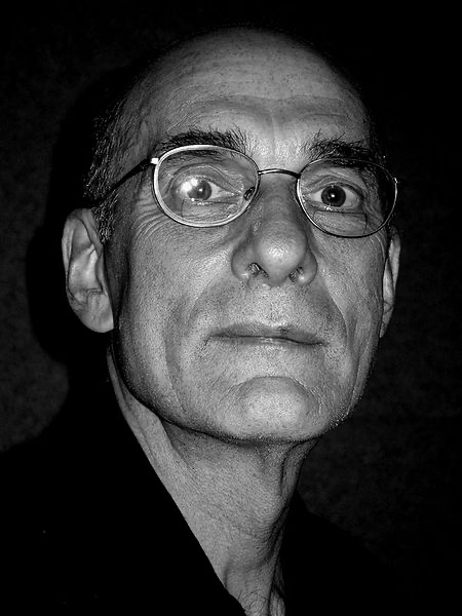Polish-American author John Guzlowski discusses his poetry, family history, and migration.
John Guzlowski, one of the most accomplished Polish-American poets, gave a guest lecture in a new Slavic Studies course on Polish migration to the Americas. Speaking via Zoom to students on Friday, October 30 in “Migrant Nation: The Polish-American Cultural Experience,” Guzlowski did a live reading of his poetry, reflected on the complicated story of his family, and answered students’ questions.
In his talk, Guzlowski read several poems from his 2016 volume Echoes of Tattered Tongues. These included My Father’s First Day in America and Refugees, which recount the story of his Polish family coming to the United States from a displaced persons camp in post-WW2 Germany.
“[My parents] wanted to leave the camp, the displaced persons camp, but they were afraid to go back to Poland. My mom’s brother, who was also in the camps, was also a slave laborer. He went back to Poland on a United Nations-sponsored train and was given money by the United Nations to go back to his home village. And when he got off the train, Russian soldiers captured him there and sent him to a concentration camp in Siberia.”
As he observed, coming to America as a displaced person was not an easy feat after World War Two.
“You needed someone to sponsor you, to pay for your passage over to America, and to guarantee that you have some kind of work once you got here. It took a while for us to find someone like that.”
Guzlowski also reflected on the perception of migration and refugees nowadays, relating his family’s migration experience to current events.
“I remember that when we came to America, there were a lot of people who didn’t want to see us here. They thought we were taking their jobs or somehow interfering with their lives, but there were still people here who welcomed us, who brought us things. We had nothing when we came, and these people had a tremendous sense of charity about them and would bring us things, they brought us food… And these were people who changed the way my parents thought about America. I think we need more of that, we need more kindness, more charity toward other people.”
“I think the problem is that we have been trained, educated to see people who are different from us as being others, as being perpetually different from us. And we tend to see their otherness as a problem. And I wish that there was some way of nullifying that.”
Asked about retaining Polish heritage and culture in the Q&A, Guzlowski expressed his regret about the loss of his Polish language skills.
“For a long time, I tried not to have anything to do with my Polish culture. I never made an attempt to maintain my Polish. When my parents were still around, I would still talk Polish with them, especially my father. Looking back at it now, I am thinking, boy, I missed out on so much!”
John Guzlowski was born in 1948 in a displaced persons camp in Germany to parents who were slave laborers in Nazi Germany. Three years later, he and his family migrated to the United States as displaced persons. The family eventually settled in the old Polish district in Chicago. Guzlowski studied at the University of Illinois in Chicago before completing this Ph.D. in American literature at Purdue University (1980). For many years, he has taught literature and creative writing at Eastern Illinois University until his retirement in 2005. An accomplished poet and author, he has published several books (Echoes of Tattered Tongues, Language of Mules, Lightning and Ashes) in addition to numerous poems, essays, and other pieces. He currently lives in Lynchburg, Virginia.
Refugees by John Guzlowski
We came with heavy suitcases
made from wooden boards by brothers
we left behind, came from Buchenwald
and Katowice and before that
Lwów, our mother’s true home,
came with our tongues
in tatters, our teeth in our pockets,
hugging only ourselves, our bodies
stiff like frightened ostriches.
We were the children in ragged wool
who shuffled in line to eat or pray
or beg anyone for charity.
Remembering the air and the trees,
the sky above the Polish fields,
we dreamt only of the lives waiting
for us in Chicago and St. Louis
and Superior, Wisconsin
like pennies
in our mouths.
